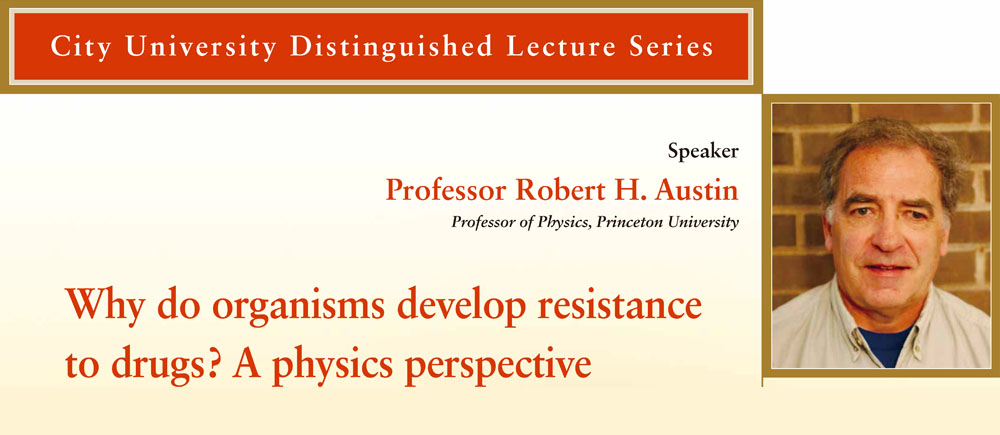
| Date: | 21 March 2012 |
|---|---|
| Speaker: | Prof. Robert Austin |
One of the great fundamental problems facing modern medicine is the seemingly inevitable emergence of resistance to drugs such as antibiotics by bacteria, or the resistance to chemotherapy by cancer cells. We seem to be involved in an arms race which we are at best keeping pace, like the Red Queen. I will explain some of the evolutionary dynamics that make this the race that it is, and may always be.
Professor Robert H. Austin received his B.A. in Physics from Hope College in Holland, Michigan and his Ph.D. in Physics from the University of Illinois Champaign-Urbana in 1975. He did a post-doc at the Max Planck Institute for Biophysical Chemistry from 1976–1979 and has been with the Department of Physics of Princeton University from 1979 to the present, achieving the rank of Professor of Physics in 1989.
He is a Fellow of the American Physical Society, a Fellow of the American Association for the Advancement of Science, and was elected a member of the National Academy of Sciences USA. He has served as a President of the Division of Biological Physics of the American Physical Society, and is the present Chair of the U.S. Liaison Committee of the International Union of Pure and Applied Physics. He has served as the biological physics editor for Physical Review Letters, serves on numerous review panels for National Institutes of Health (NIH), National Science Foundation (NSF), the Burroughs Wellcome Fund and National Institute of Standards and Technology (NIST), and is the Editor of the Virtual Journal of Biological Physics. He won the 2005 Edgar Lilienfeld Prize of the American Physical Society.